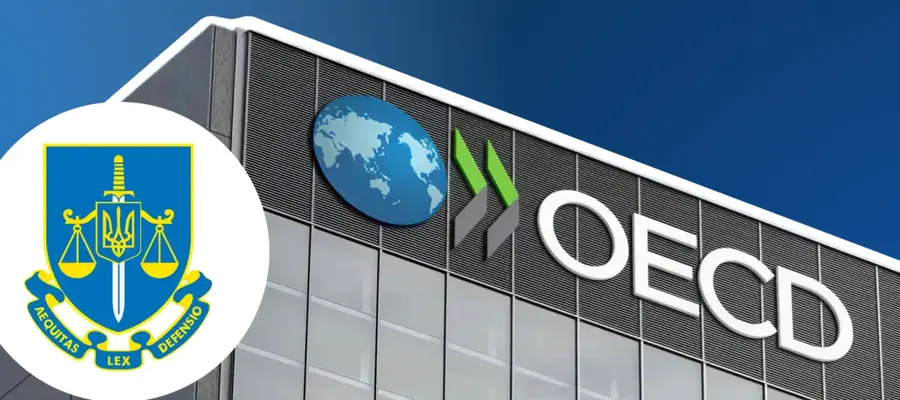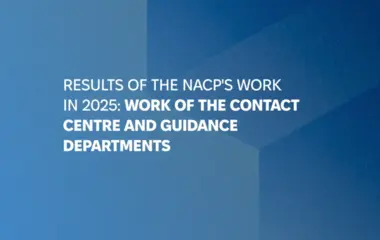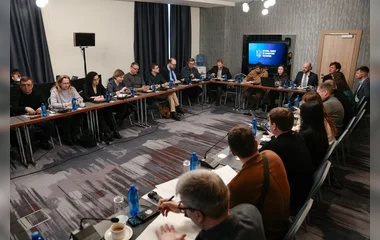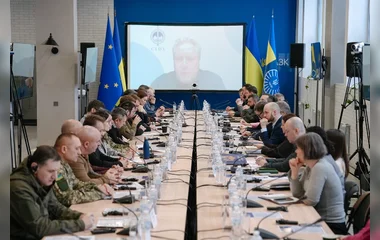According to the assessment by the Organisation for Economic Co-operation and Development (OECD) within the fifth round of monitoring of the Istanbul Action Plan, Ukraine received 58.1 points out of 100 in the "Prosecutorial Independence" area, which is considered a high indicator of compliance with OECD standards.
The monitoring team established compliance with most criteria related to holding prosecutors disciplinarily accountable. Specifically, the legislation clearly defines the grounds for disciplinary liability, dismissal of prosecutors, and the main stages of disciplinary proceedings. The grounds for liability are mostly clear and objective, covering cases such as, for example, disclosure of confidential information that became known to the prosecutor during the exercise of their powers. At the same time, among the remaining challenges is the need to refine certain grounds that provide broad discretionary powers when considering complaints, specifically regarding "improper performance of official duties" or "committing actions that discredit the title of prosecutor and may cast doubt on their objectivity, impartiality and independence, and on the integrity and incorruptibility of the prosecution authorities".
The OECD positively noted that the verification of facts in a disciplinary complaint against a prosecutor in Ukraine is conducted by a member of the Qualification and Disciplinary Commission of Prosecutors (QDCP) appointed by an automated distribution system. The final decision on the presence or absence of an offense, as well as on disciplinary sanctions, is made by the QDCP collegially. At the same time, the QDCP member who conducted the initial review and prepared the conclusion on signs of misconduct does not participate in the final discussion and voting on the case.
The Report also confirmed compliance with criteria that ensure the effective functioning of bodies guaranteeing prosecutorial independence: the All-Ukrainian Conference of Prosecutors, the Council of Prosecutors of Ukraine, and the QDCP. Their status, powers, composition, and formation procedure are clearly defined at the legislative level.
Thus, the QDCP has several core functions, including the selection of candidates for positions of prosecutors of the district prosecutor's office. The appointment procedure was confirmed as complying with criteria for selection based on competitive principles and in accordance with transparency requirements: all vacancies are announced online, any candidate meeting the requirements may submit an application, and selection is carried out according to clearly defined criteria of experience, skills, and integrity. The process is conducted in two stages: first, candidates are selected for the reserve, and then a competition is held for actual vacancies.
Prosecutorial self-governance is exercised through the All-Ukrainian Conference of Prosecutors and the Council of Prosecutors of Ukraine. The All-Ukrainian Conference of Prosecutors is entrusted with such functions as approving regulations on the Council of Prosecutors and the QDCP, as well as the Code of Professional Ethics and Conduct of Prosecutors. It appoints members of the Council of Prosecutors and the QDCP.
The Council of Prosecutors of Ukraine, among other things, makes recommendations on the appointment and dismissal of prosecutors from administrative positions in cases provided for by the Law of Ukraine "On the Prosecutor's Office", organizes the implementation of measures to ensure the independence of prosecutors, etc.
The Report also outlined the main directions for further development. Among them are detailing the grounds for holding prosecutors disciplinarily accountable, improving the assessment of prosecutors' work quality for the calendar year, expanding competitive principles for appointing prosecutors to positions, continuing to strengthen the independence of the Council of Prosecutors of Ukraine and the Qualification and Disciplinary Commission of Prosecutors.
As a reminder, the subject of assessment was the system of preventing and combating corruption in Ukraine across nine key areas: "Anti-Corruption Policy", "Conflict of Interest and Asset Declaration", "Whistleblower Protection", "Business Integrity", "Public Procurement Transparency", "Independence of the Judiciary", "Prosecutorial Independence", "Specialized Anti-Corruption Bodies", "Liability for Corruption Offenses".
A distinctive feature of the fifth round was the application of performance indicators defined in the Methodology of monitoring. To assess the achievement of indicators, compliance criteria are used that are based on international standards and best practices, and also include recommendations provided by the OECD within the previous round of monitoring. This assessment system ensures objectivity, consistency, and transparency of conclusions.
About Ukraine's progress in the field of anti-corruption policy, in the area of conflict of interest and asset declaration, in the area of whistleblower protection, in the area of business integrity, in the area of public procurement transparency, as well as in the area of independence of the judiciary - on the NACP website.
The full text of the report on the results of the fifth round of monitoring of the Istanbul Action Plan for Combating Corruption is available via the link.
For reference. The OECD ACN is a regional work program within the OECD Working Group on Bribery, established in 1998. Its mission is to support member countries in preventing and combating corruption through country analyses, networks of practitioners, as well as individual technical assistance.
The Istanbul Action Plan for Combating Corruption is a regional peer review program launched in 2003 within the OECD ACN, which supports reforms by conducting analysis and monitoring the implementation of recommendations that promote the best international standards.
The Istanbul Action Plan for Combating Corruption provides for reviews of ten countries of the OECD Anti-Corruption Network: Ukraine, Armenia, Georgia, Kazakhstan, Kyrgyzstan, Moldova, Mongolia, Tajikistan, Azerbaijan, and Uzbekistan. Ukraine joined the Program in 2003 and has undergone five rounds of monitoring. All previous reports are available on the ACN website.
In March 2024, the OECD published the Report on Anti-Corruption Reforms in Ukraine Based on the Results of the Fifth Round of Monitoring of the Istanbul Action Plan for Combating Corruption (during 2023, Ukraine underwent an abbreviated review covering 5 areas out of 9: "Anti-Corruption Policy", "Asset Declaration", "Independence of the Judiciary", "Specialized Anti-Corruption Bodies", "Liability for Corruption Offenses".
The Report confirmed that Ukraine demonstrated significant progress in various areas of combating corruption and building integrity.









